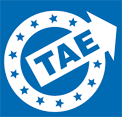Trademarks at risk in Europe!
TAE warns: Dispute over the trademark rights to a small bread roll could have implications for the European economy
Brussels. The Taxpayers Association of Europe (TAE) currently follows with great concern a trademark dispute (Case C 409/12) pending at the European Court of Justice (ECJ). In the model case proceedings for the rights to a bread roll, the judges must give prime consideration to the question as to whose understanding of a brand name is important, with the associated question of whether there is a freely available generic term, or whether the rights of the affected brand are worth protecting. Previously it was sufficient that trade and intermediaries were aware of the brand name. Contrary to the position about trademark protection prevailing in most EU countries, for the competent Advocate General, the general interpretation of the end user is the key to the preservation of a brand.
"Very few have realized so far that this case could have enormous implications for the whole European economy. Depending on the outcome of the proceedings, the trademarks of countless European companies are threatened", warns Rolf von Hohenhau, President of the TAE. The proceedings before the ECJ (Case C 409 /12) are dealing with the intellectual property rights of the Austrian company "backaldrin", which invented and protected their bread roll named "Kornspitz". As the case has been written about almost exclusively in the Austrian media, apparently not many people have considered the possible implications of the ECJ decision for the European economy. "Companies still can assert their intellectual property rights to other companies and to the retailers“ says Mr. Von Hohenau. However, if in the future these rights entirely depend on the perception of the consumer, it will be simply impossible for the businesses concerned to affect this perception significantly - especially Small and Medium Entrepreneurs will be threatened with the loss of trademarks, which were expensive to protect.
The protection of trademarks and ideas is the basis of successful entrepreneurial activity. Rolf von Hohenhau: "Our European companies must be able to rely on the legal protection of their trademarks and their ideas and innovations." The rules must be clear and understandable and should not depend on the "random perception" of the consumer. "We hope that the judges of the ECJ are aware of the scope of their decision, especially for our SMEs. I can only appeal to the judges to consider and weigh all consequences very carefully." Depending on the outcome of the proceedings, otherwise it would become necessary that the legislature provide for clear brand protection, von Hohenhau concluded.



